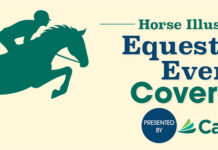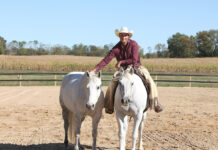English is a complicated language that has “borrowed” from other languages over time, taking a little piece from here, and a little bit from there. Similarly, it’s also full of phrases that might have formerly meant one thing, and now mean something else entirely.
“Long in the tooth”
Meaning: getting older, rather old.
Origin: Because horse’s teeth continue to grow throughout their lives, the approximate age of a horse can be determined by examining its teeth—a horse “long in the tooth” is getting on in years.
“It’s a cinch”
Meaning: a sure thing, an easy thing
Origin: Horse racing. A trainer with a sure winner only had to “cinch up” the saddle for a win to be guaranteed, so “it’s a cinch” became a term for an easy task or victory.
“Hold your horses”
Meaning: slow down, stop being hasty, wait until the time is right.
Origin: Basic horsemanship skills! A very early literary reference is found in Book 23 of Homer’s Iliad.
“Dark horse”
Meaning: an unexpected winner in a competition or contest, including politics
Origin: Horse racing. A “dark” horse was a horse whose abilities were unknown, but who became a winner despite the long odds.
“Don’t look a gift horse in the mouth”
Meaning: Don’t be ungrateful for a present or free item by complaining about its value.
Origin: Similar to “long in the tooth,” looking at a horse’s mouth implies that you’re judging its age.
“My kingdom for a horse!”
Meaning: An object or possession that is normally insignificant can become highly valuable under certain conditions.
Origin: Spoken by King Richard III during a battle scene in the play Richard III by Shakespeare.
“Don’t put the cart before the horse”
Meaning: You have to do things in the proper order.
Origin: Common sense!
“I fear the Greeks, even when bearing gifts.”
Meaning: Be suspicious of an enemy who is suddenly acting nice to you.
Origin: Spoken by the Trojan Laocoön in Virgil’s Aeneid when the Greeks leave behind the giant wooden horse.
“Charley horse”
Meaning: a muscle cramp.
Origin: Unknown, American. Theories include the baseball pitcher Charley “Old Hoss” Radbourne, who sometimes got cramps; otherwise, a lame equine named Charley.
“Walkover”
Meaning: A sporting event or election that is won by default since there is only one competitor.
Origin: Horse racing, if only one horse entered the race, all he had to do was walk or gallop around the track to win.
Daniel Johnson is a freelance writer and professional photographer. He’s the author of several books, including How to Raise Horses: Everything You Need to Know, (Voyageur Press, 2014). Dan’s barn is home to Summer, a Welsh/TB cross, Orion, a Welsh Cob, and Mati and Amos, two Welsh Mountain Ponies. Follow him at www.facebook.com/foxhillphoto.







haha, i like those!
Those were good, funny, some of them I did not hear before. I was trying to think fast to add more, but I could n’t.
I enjoyed reading these.
But you didn’t explain the origin of “straight from the horse’s mouth” — which seems debated.